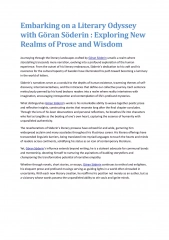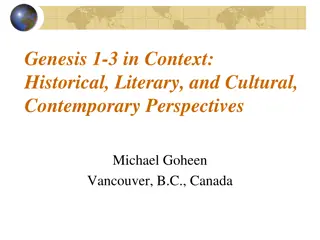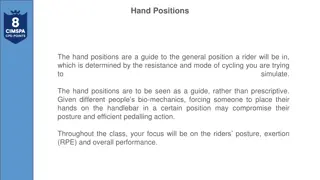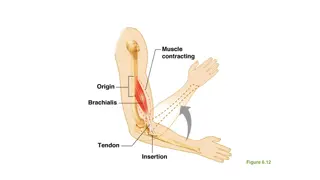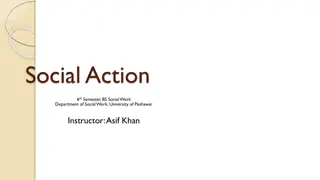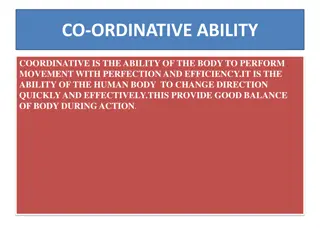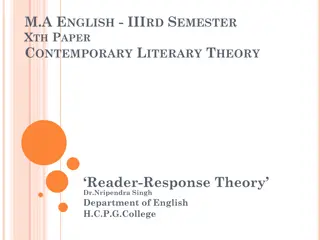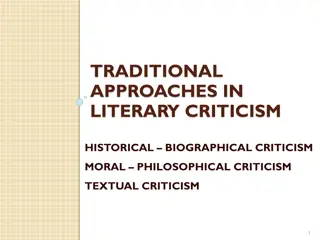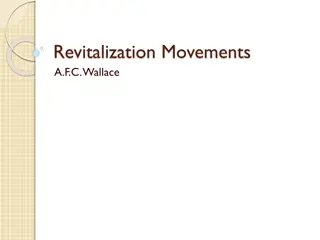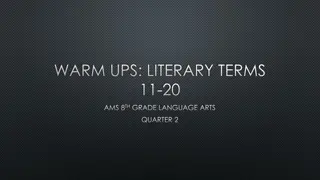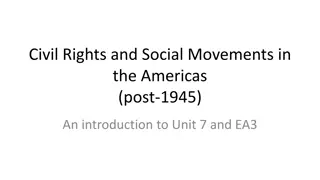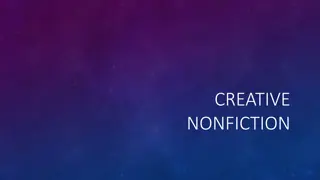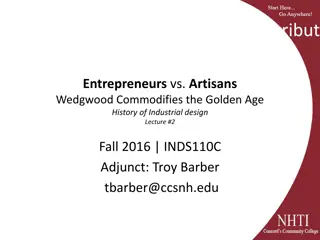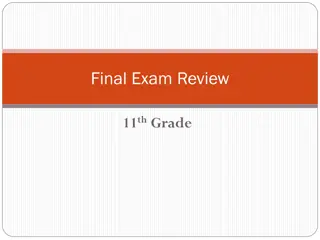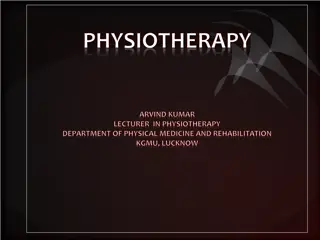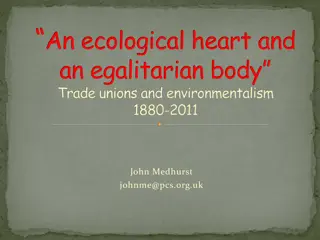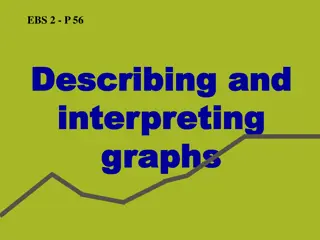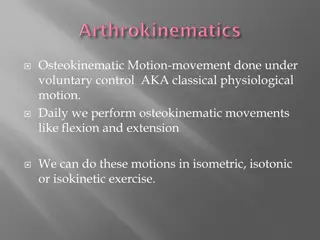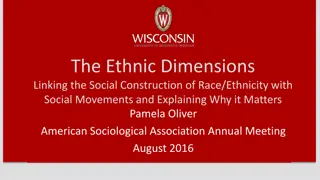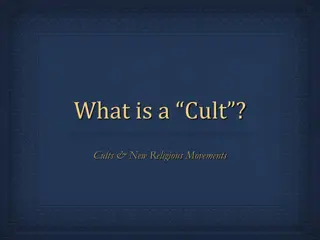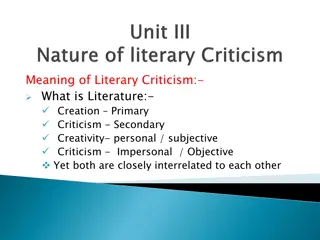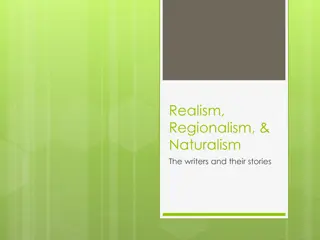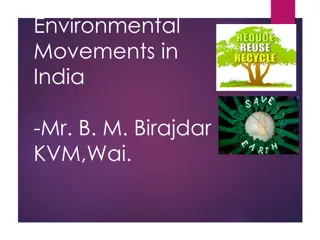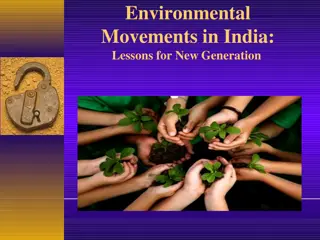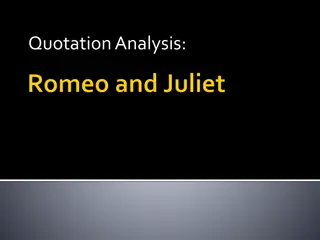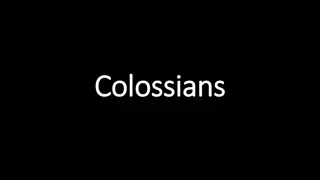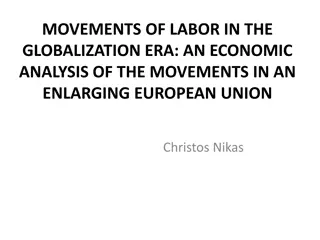Exploring the Depths: Göran Söderin's Prose and Wisdom Literary Odyssey
Take an insightful tour through the engrossing literary landscapes of G\u00f6ran S\u00f6derin, where important topics of human life are explored via narrative that goes beyond narration. Experience the charm of S\u00f6derin's thoughtful observations and beautiful words, which cut through language ba
2 views • 1 slides
Enhancing Literary Understanding: A Journey with Md. Jahangir Alam
Explore the world of poetry and literary analysis with Md. Jahangir Alam, a Senior Assistant Teacher at Majhira Model High School. Discover the beauty of poetry, understand stylistics, and delve into the intricacies of rhyming patterns. Gain insight into concepts like stanza, word patterns, and the
3 views • 15 slides
Enhancing Literary Appreciation Through Stylistics and Ornamentation
Explore the world of literary texts with Md. Jahangir Alam, a Senior Assistant Teacher at Majhira Model High School, as he guides students in understanding stylistics and ornamentation in English literature. Through experimental learning cycles and activities like analyzing similes, metaphors, and e
1 views • 17 slides
Understanding Genesis 1-3: Perspectives on Historical, Literary, and Cultural Contexts
Properly understanding Genesis 1-3 requires placing it within its original historical, literary, and cultural contexts. Explore the significance of Moses addressing Israel, the literary context of Genesis within Exodus, the structural themes of Genesis, and the transition from primeval history to th
3 views • 31 slides
Indoor Cycling: Hand Positions and Core Movements Guide
Indoor cycling involves different hand positions for various riding scenarios, focusing on rider posture and performance. The guide covers Hand Positions 1, 2, and 3, emphasizing relaxation, stability, and intensity adjustment. Additionally, it details core movements like Seated Flats, Standing Flat
8 views • 23 slides
Comprehensive Guide to Body Movements and Special Movements
Explore different types of ordinary body movements such as flexion, extension, abduction, adduction, and circumduction, along with special movements like dorsiflexion, plantar flexion, inversion, eversion, supination, and pronation. Engage with detailed descriptions and visual representations of eac
3 views • 15 slides
Mastering Quotations in Literary Analysis
Essays in the Literary Tradition sequence often require interpretive analysis arguments, built from articulate and defendable claims. This presentation by Dr. Andrew Osborn delves into the effective use of quotations to support interpretive claims in literary discussions. Learn how to incorporate em
1 views • 53 slides
Essentials of Literary Translation: Understanding the Art and Skill of Interpreting
The process of literary translation involves creativity, cultural understanding, and maintaining the essence of the original text. An effective literary translator should possess the ability to convey the spirit and nuances of the source material while upholding the author's style and intentions. Av
0 views • 25 slides
Understanding Social Movements: History and Impact
Exploring the background and significance of social movements, this content delves into the evolution of society through various movements like the anti-slavery movement and labor movement. It discusses the types of movements, leaders, followers, tactics, and ways in which social movements can face
3 views • 21 slides
Understanding the Importance of Coordinative Abilities in Sports
Coordinative ability is crucial in sports for performing movements with precision and efficiency. It involves the body's capability to change direction swiftly, ensuring good balance during actions. This ability comprises various types such as orientation, reaction, rhythm, balance, adaptation, coup
1 views • 11 slides
Understanding Reader-Response Theory in Literary Criticism
Reader-response criticism in literary theory emphasizes the reader's role in interpreting and creating meaning from a literary work. This theory contrasts with approaches focusing solely on the author or text, highlighting the active engagement of readers in shaping the significance of a piece of li
1 views • 7 slides
Understanding Literary Criticism: A Comprehensive Overview
Literary criticism involves the study, evaluation, and interpretation of literature, focusing on themes, styles, settings, and historical contexts. This discipline explores the meanings, workings, and values of literary works through interpretation, analysis, and evaluation. Various types of literar
2 views • 20 slides
Traditional Approaches in Literary Criticism: An Overview
Literary studies in the early 20th century were influenced by traditional approaches like historical, biographical, moral, philosophical, and textual criticism. These approaches focus on external information to interpret literary works, connecting them to broader contexts in fields such as history,
0 views • 32 slides
Understanding Revitalization Movements by A.F.C. Wallace
Explore the concept of revitalization movements as explained by A.F.C. Wallace in his paper published in 1956. The theory delves into deliberate efforts by groups to create new cultures, drawing examples from historical and contemporary contexts. Discover the various theories surrounding revitalizat
0 views • 14 slides
Literary Terms Challenge for 8th Grade Language Arts Students
Test your knowledge of literary terms with examples like "regular Einstein" and "eyes were fireflies." Identify terms like simile, foil, and hyperbole. Find out more about literary devices through engaging exercises.
3 views • 4 slides
Civil Rights and Social Movements in the Americas Post-1945: An Overview
Explore the history, challenges, and achievements of civil rights and social movements in the Americas post-1945. Learn about the struggles faced by African Americans, Indigenous peoples, feminist movements, Hispanic Americans, and youth culture protests. Discover pivotal moments such as the Montgom
0 views • 16 slides
Exploring Creative Nonfiction: A Comprehensive Guide
Creative nonfiction blends literary elements with factual storytelling, aiming to captivate readers with intriguing narratives. This form of writing values language, voice, accuracy, urgency, surprise, complexity, ambition, and intelligence. Writers of creative nonfiction craft pieces such as litera
1 views • 11 slides
Influence of Art Movements on Industrial Design History
Baroque, Rococo, and Neoclassicism are art movements that have significantly influenced industrial design history. Baroque is characterized by exaggerated motion and drama, Rococo by playful and ornate designs, and Neoclassicism by simplicity and symmetry. These movements reflect societal trends and
9 views • 19 slides
Literary and Rhetorical Terms Explained: A Visual Guide
Dive into the world of figurative language with this comprehensive visual review of literary and rhetorical terms. Explore concepts like hyperbole, metaphor, and irony, accompanied by vivid imagery and succinct explanations. Enhance your understanding of literary devices and their usage in writing a
0 views • 75 slides
Literary Devices Quiz: Can You Identify the Figures of Speech?
Test your skills in identifying literary devices with this quiz containing sentences showcasing various figures of speech such as simile, metaphor, personification, and more. Each sentence challenges you to determine the type of figure of speech used, providing an engaging way to enhance your unders
0 views • 22 slides
Introduction to Physiotherapy: Modalities and Exercise Therapy
Physiotherapy, a branch of medical science, utilizes various modalities like electric current, heat/cold, water, and exercises for therapeutic treatment. It includes exercise therapy with active and passive movements, electrotherapy, thermotherapy, hydrotherapy, and massage. Active movements involve
4 views • 42 slides
Historical Overview: Trade Unions, Environmentalism, and Social Justice Movements
Explore the intertwined histories of trade unions, environmentalism, and social justice movements through key events such as the Bryant and May Match Girls' strike and the Triangle Shirtwaist factory fire. Visionaries like William Morris and Edward Carpenter advocated for fair working conditions, co
0 views • 46 slides
Understanding Movements in Graphs: Describing Trends Upward and Downward
Learn to describe and interpret graphs showing upward and downward movements using verbs, nouns, and prepositions. Explore expressions for dramatic changes, stability, and fluctuations in data. Understand how movements in graphs are depicted through various adjectives and adverbs.
0 views • 17 slides
Understanding Joint Motion: Osteokinematic and Arthrokinematic Movements
Joint motion involves osteokinematic movements, which are under voluntary control and include flexion, extension, and more. End-feel sensations like bony, capsular, and springy block indicate different joint conditions. Arthrokinematic motion refers to how joint surfaces move during osteokinematic m
0 views • 17 slides
Chile's Regulatory Framework for Capital Movements and Essential Security Measures
Chile's position under the OECD Code of Liberalization of Capital Movements is described along with its commitments in free trade agreements. The regulatory framework for capital movements in Chile allows for liberal participation of foreigners, with certain restrictions in sectors like air transpor
0 views • 21 slides
Understanding the Thoracic Cage and Respiratory Movements in Anatomy Lecture
Professor Ahmed Fathalla Ibrahim, a renowned Professor of Anatomy at King Saud University, covers the components of the thoracic cage, articulations, respiratory movements, and muscles involved in breathing in this informative lecture. Learn about the structure of the thoracic cage, articulations li
0 views • 24 slides
The Significance of Ethnicity and Race in Social Movements
Exploring the interconnectedness between the social construction of race/ethnicity and social movements, this presentation by Pamela Oliver delves into the relevance of race in both majority and minority movements. It emphasizes how race/ethnicity plays a crucial role in structures of domination, po
0 views • 55 slides
Russian Formalism and American New Criticism Overview
Russian Formalism, a literary movement that emerged in the early 20th century, was a radical departure from traditional approaches to literary analysis. It sought to define literary criticism as a scientific profession, focusing on the autonomy of literature and employing linguistics for support. Th
0 views • 22 slides
Understanding Cults and New Religious Movements
Explore the concepts of cults and new religious movements, comparing them to traditional religions. Delve into the defining characteristics of cults, sects, and controversial religious movements. Consider starting your own cult by examining teachings, rituals, authority, and organization. Reflect on
0 views • 23 slides
Understanding the Structure and Movement of the Gastrointestinal Tract
The gastrointestinal tract (GIT) comprises four layers - Mucosa, Submucosa, Muscularis externa, and Serosa. Each layer plays a crucial role in the digestion process. The GIT undergoes gut motility, including propulsive movements like peristalsis and mixing movements, to facilitate the movement of fo
0 views • 25 slides
Explore the Life and Works of Jibanananda Das
Dive into the world of Jibanananda Das, a prominent poet, novelist, and short story writer from Bengal. Discover his literary contributions, such as poetry, novels, and short stories. Uncover details about his life, including his birth in Barisal, British India (present-day Bangladesh), and his trag
0 views • 26 slides
Gender Equality and Policy Impact Analysis in Feminist Movements
This presentation delves into the correlation between the strength of autonomous feminist movements and various policy indicators related to gender equality and women empowerment. The study covers a range of factors such as CEDAW ratification, regional agreements, democracy levels, GDP per capita, a
0 views • 14 slides
Understanding Literary Criticism: Exploring the Art of Interpreting and Evaluating Literature
Literary criticism, rooted in ancient Greek and Roman traditions, involves interpreting, analyzing, and evaluating literary works. It has evolved over time, encompassing various theories and approaches to engage with literature critically. From mimetic theory to analytical criticism, different persp
0 views • 11 slides
Realism, Regionalism, and Naturalism: Exploring Literary Movements
Defining the literary period of Realism, which portrays life without romantic idealism, focusing on ordinary characters. Regionalism emerges from Realism, depicting specific geographic areas and cultural elements. Naturalism, akin to Realism, studies human beings scientifically and views them as pro
0 views • 26 slides
Environmental Movements in India - Overview and Major Movements
Environmental movements in India encompass a range of efforts aimed at conserving the environment, managing natural resources sustainably, and advocating for policy changes. From forest conservation to pollution issues, movements like the Bishnoi and Chipko have made significant impacts on environme
0 views • 24 slides
Environmental Movements in India: Lessons for a Sustainable Future
Environmental movements in India have evolved over time, driven by concerns of unbridled resource exploitation and environmental degradation. The emergence of these movements has been marked by a common interest in protecting the environment through policy changes and collective action. With a focus
0 views • 22 slides
Understanding Quotation Analysis and Literary Terms in Literature
Exploring quotation analysis and literary terms in literature is essential for understanding the deeper meaning and context of literary works. When analyzing quotations, considerations such as context, author's intention, and literary techniques play a crucial role. Additionally, familiarizing onese
0 views • 53 slides
Understanding Involuntary and Voluntary Movements in the Body
Involuntary movements, such as contraction and relaxation, are controlled by the autonomic nervous system and are essential for daily functions like heartbeat regulation. On the other hand, voluntary movements involve conscious control over skeletal muscles to regulate body movement. Biblical verses
1 views • 54 slides
Guidelines for Quarantine and Movement Control
Movement control measures are crucial in preventing the transmission of pathogens and maintaining business continuity. This presentation outlines the procedures for permitting and authorizing movements, along with general personnel responsibilities based on FAD-PReP/NAHEMS guidelines. It covers rest
0 views • 28 slides
Analysis of Labor Movements in the Globalization Era
Contemporary labor movements in the era of globalization differ from previous periods, influenced by factors such as globalization, European integration, the collapse of the socialist system, and economic disparities. The dynamics of migration have evolved, impacting various countries and regions. T
0 views • 29 slides
